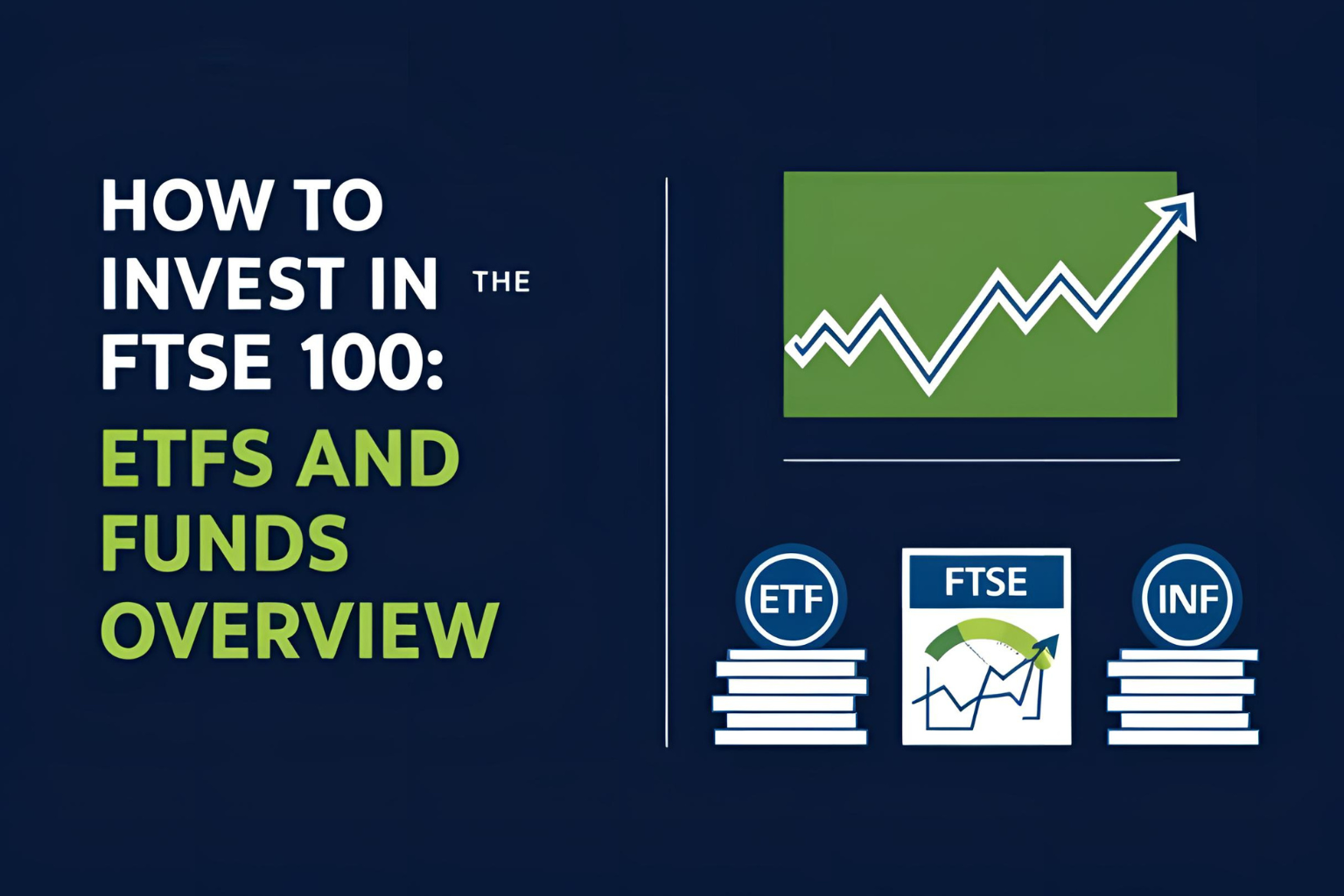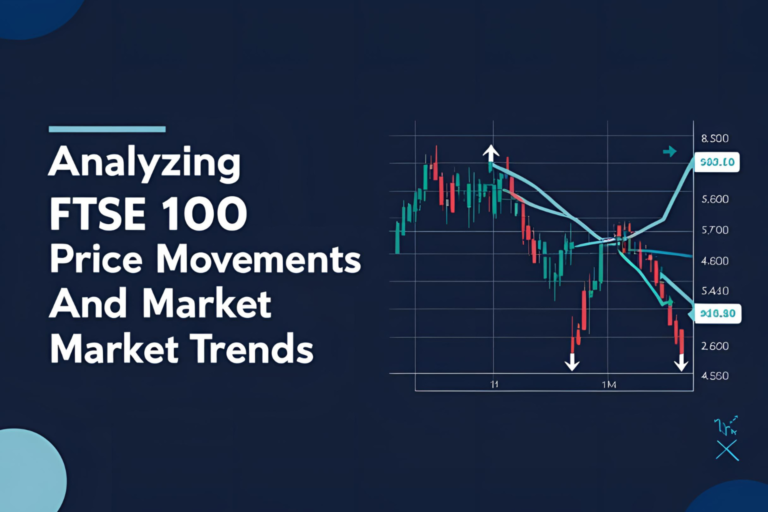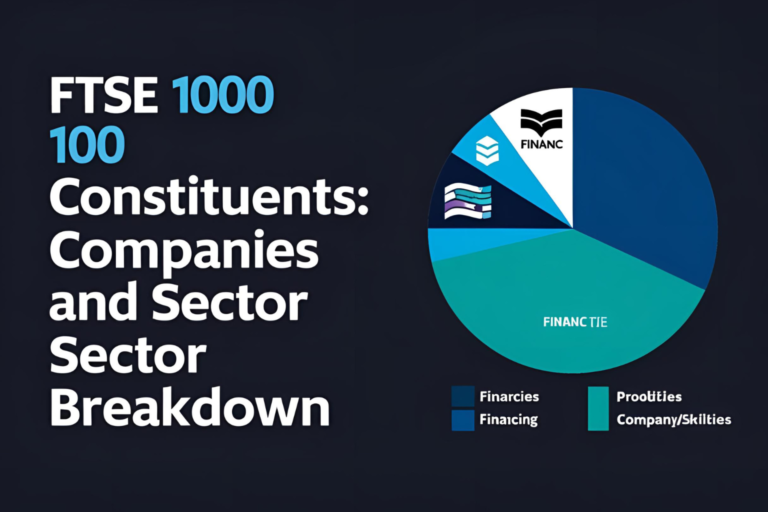How to Invest in the FTSE 100: ETFs and Funds Overview
Introduction:
If you’re looking to invest in the UK’s biggest and most influential companies, the FTSE 100 is a great place to start. While you can’t buy the index directly, there are easy ways to gain exposure to its performance through ETFs (Exchange-Traded Funds) and index funds. This post explains how to invest in the FTSE 100 and the options available for beginners.
Can You Invest Directly in the FTSE 100?
No, the FTSE 100 is a market index, not a stock or a fund.
However, you can invest in products that track the index, such as:
- FTSE 100 ETFs
- FTSE 100 Index mutual funds
These products aim to mirror the performance of the index by holding shares of the actual companies in the FTSE 100.
Popular FTSE 100 ETFs
ETFs are traded on stock exchanges just like regular shares. They offer:
- Low fees
- Instant diversification
- Liquidity (you can buy/sell anytime the market is open)
Here are some popular options:
- iShares Core FTSE 100 UCITS ETF (ISF)
- Vanguard FTSE 100 UCITS ETF (VUKE)
- HSBC FTSE 100 UCITS ETF (HUKX)
Each ETF holds all (or most) of the FTSE 100 constituents and aims to replicate index performance, minus minimal management fees.
FTSE 100 Index Funds
Index funds are similar to ETFs but may be purchased directly through investment platforms and are typically managed passively.
Benefits:
- Suitable for long-term investing
- Automatic dividend reinvestment (in accumulation versions)
- Consistent exposure to the UK’s top companies
Well-known FTSE 100 index funds:
- Vanguard FTSE 100 Index Fund
- Legal & General UK 100 Index Trust
Accumulation vs Income Units
When investing in funds, you’ll often see two options:
- Accumulation units (Acc): Dividends are reinvested automatically, growing your investment.
- Income units (Inc): Dividends are paid out to you as cash.
Choose Acc for long-term growth or Inc for passive income.
Where to Invest in FTSE 100 Funds/ETFs
You can invest through:
- Online brokers (e.g. Hargreaves Lansdown, eToro, Vanguard UK)
- Robo-advisors (e.g. Nutmeg, Moneybox)
- ISA or pension accounts for tax benefits (UK investors)
Make sure to review:
- Ongoing charges (TER)
- Tracking error
- Dividend yield
- Fund size and provider reputation
Conclusion
Investing in the FTSE 100 is simple and accessible, thanks to ETFs and index funds. These tools allow you to benefit from the long-term performance of the UK’s largest companies without needing to buy individual shares. Whether you prefer passive growth or income, there’s a FTSE 100 investment option for you.
FAQs
1. Can I invest directly in the FTSE 100 Index?
No, but you can invest in ETFs or index funds that track its performance.
2. What’s the best FTSE 100 ETF for beginners?
The iShares Core FTSE 100 ETF (ISF) and Vanguard FTSE 100 ETF (VUKE) are popular choices due to low fees and wide access.
3. What’s the difference between ETFs and index funds?
ETFs trade like stocks on an exchange. Index funds are bought through fund providers and usually held for the long term.
4. Are FTSE 100 investments risky?
All investments carry risk, but the FTSE 100 includes diversified, large-cap companies, making it relatively stable for long-term investors.
5. Can I invest in the FTSE 100 from outside the UK?
Yes, many brokers and global platforms offer FTSE 100 ETFs and funds to international investors.





